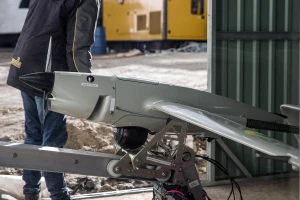
US carefully examines evidence in Kakhovka HPP explosion case
U.S. law enforcement officials are studying the details of the case of the Kakhovka hydroelectric power plant blowing up in Kherson region to identify the direct participants in the crime
According to Eli Rosenbaum, the US Attorney General's adviser on war crimes prosecutions, the destruction of the hydroelectric dam on 6 June is a "matter of significant interest" to the United States.
"This issue is also on the radar of our law enforcement agencies," said the US Department of Justice representative.
He also noted that the United States is generally very cautious in its official assessments of crimes committed by the Russian occupiers, and states this with "all the necessary evidence".
Thus, Rosenbaum noted, the US authorities will make official statements about who was involved in the destruction of the dam when "the time is right and when the evidence is thoroughly investigated and established".
What is known about Kakhovka HPP
The Russian invaders seized the main structure of the North Crimean Canal and the Kakhovka HPP on 24 February last year.
The Kakhovka HPP is located 5 km from the Russian-occupied Nova Kakhovka. The water for the North Crimean Cannal is taken from the Kakhovka reservoir.
This hydroelectric power plant is the lowest and last (sixth) stage in the Dnipro reservoir cascade.
The hydroelectric power plant near Nova Kakhovka ensured the annual regulation of the Dnipro river flow, water and electricity supply in the southern part of Ukraine
On 20 October 2022, Ukrainian President Volodymyr Zelenskyy warned that Russia was preparing to stage a new large-scale terrorist attack - to blow up the dam of the Kakhovka hydroelectric power station in Kherson region. At the same time, he listed other consequences that could be caused by the explosion of the
Kakhovka HPP and its dam:
-
Hundreds of thousands of residents of southern Ukraine would be in the danger zone and could suffer from the resulting floods;
-
water supply to a large part of southern Ukraine and Crimea could be disrupted;
-
a Russian terrorist attack could leave the Zaporizhzhia nuclear power plant without water for cooling, as water for ZNPP is taken from the Kakhovka reservoir;
-
the overall devastating environmental, humanitarian, and man-made consequences of such a terrorist attack would reach the scale of a "historic catastrophe".
Later, the head of the Kherson City Military Administration, Halyna Luhova, addressed the people of Kherson in connection with Russia's preparation of a terrorist attack on the Kakhovka HPP. She published an algorithm of actions to be taken in the event of a dam being blown up.
On Tuesday, 6 June, Russian occupation forces blew up the Kakhovka hydroelectric power station, completely destroying it. For more information on how the situation developed on the morning of 6 June, please follow this link
- News












































